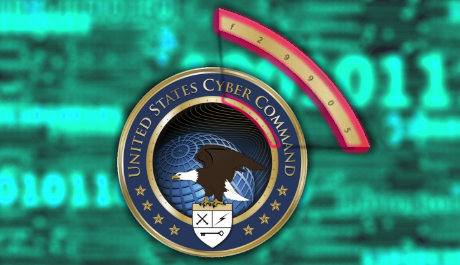Looking for the next-generation e-spy? Start a viral codebreaker

The US Cyber Command ("CYBERCOM") in Fort Meade, Maryland is claimed to be one of the most secret, secure and vital units that the US government has. Thought to deal with cyber-terrorism and online crime, a growing threat brought to light by the Google/China attacks, Wired points out that though they may well be there "to defend the Internet", their work is rather a mystery.
Nevertheless, another mystery has come out of this, with a code embedded into the official logo of the organisation.

The code embedded in the full logo, found here via Wired, reads: 9ec4c12949a4f31474f299058ce2b22a. Some good guesses have been put forward so far, with some of the most likely including:
- Poder Cybernetico ("To be cybernetic");
- In God We Trust;
- To Serve and Protect;
- All Hail The Lizard King!;
- It is the number and password to the Swiss safety deposit box that has Obama’s real birth certificate.
It is not clear why the code embedded in the logo is even there, nor whether it is part of a wider ploy to crack the code and thus recruit the smartest code-breakers into the organisation. Nevertheless, it is something the UK's intelligence service, GCHQ, which monitors and intercepts electronic data for counter-terrorism, employed a few years ago as part of their graduate challenge process.
So far the responses to the Wired article which broke this story has been immense, with a clear community spirit showing with any assistance given by viewers and readers of the site.
Employers don't just check Facebook to see the inner depths of their potential future workers, but some actively monitor the web for such activities. I could bet money that whoever gets the right answer to this code will be approached by somebody, somewhere, to work in the field.